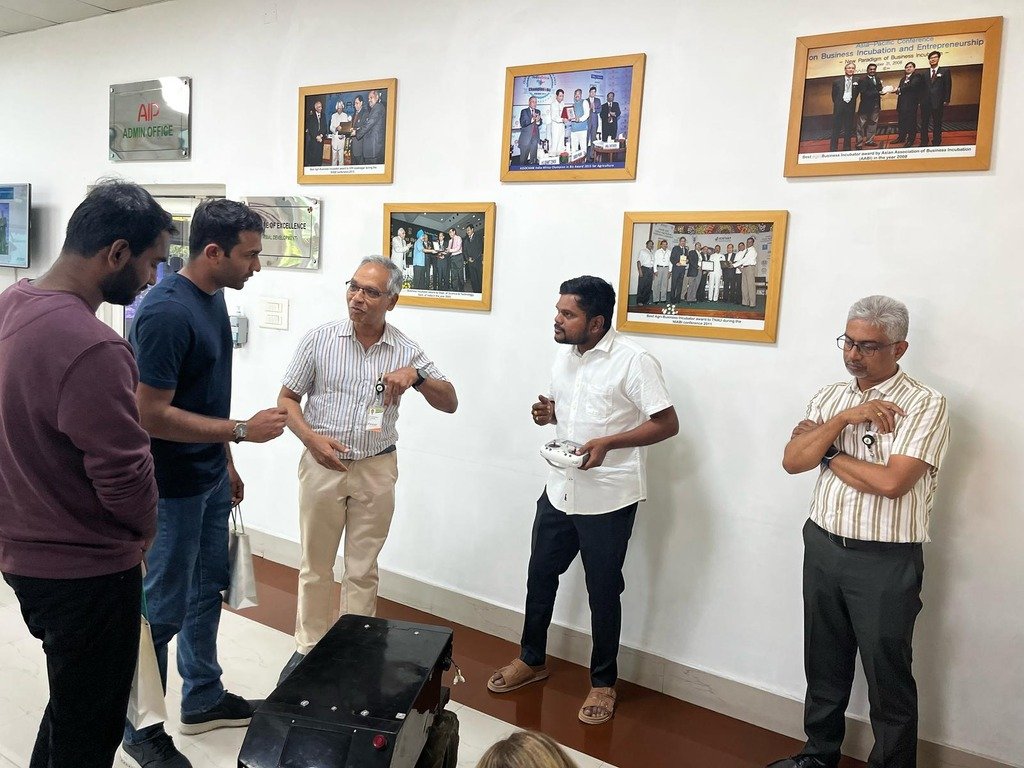A cohort of five UK-based agricultural technology companies recently participated in a five-day visit to India as part of the UK-India Agri-Tech Accelerator Programme. The initiative, designed to foster late-stage research and development, investment opportunities, and market access, facilitated knowledge exchange between Indian and British stakeholders. The visit, which took place from March 17 to 21, included engagements in Delhi, Hyderabad, and Bengaluru.
Aims of the UK-India Agri-Tech Accelerator Programme
Organized by the UK Agri-Tech Centre in partnership with the UK government, the programme serves as a platform to address critical challenges in India’s agricultural sector. With the agricultural landscape evolving rapidly, the initiative seeks to promote collaboration in agri-tech, enabling businesses to tailor their technologies to the Indian market. It also provides a space for networking, allowing UK companies to showcase their expertise and establish commercial partnerships that can accelerate export opportunities and foreign direct investment.
The five UK companies that took part in the Accelerator Programme—Mutus Tech, LinearWorks, Green Crop Tech, AgriSound, and LettUs Grow—bring diverse technological solutions to the table. Their services include artificial intelligence (AI) and machine learning (ML) platforms for pest monitoring and plant health assessment, bio-stimulants aimed at sustainable crop growth, pollination tracking systems, and aeroponic farming methods. These innovations are particularly relevant for India’s diverse agricultural landscape, which ranges from traditional farming to high-tech agribusinesses.
Understanding India’s Agricultural Ecosystem
During their time in India, representatives from these companies engaged with key stakeholders, including policymakers, research institutions, and agricultural enterprises. Their visit to the International Crops Research Institute for the Semi-Arid Tropics (ICRISAT) provided them with deeper insights into the challenges and opportunities within the Indian agricultural sector, particularly in semi-arid regions where resource-efficient solutions are critical.
According to British Deputy High Commissioner for Andhra Pradesh and Telangana, Gareth Wynn Owen, the UK-India Agri-Tech Accelerator Programme underscores the strong bilateral relationship between the two nations. He emphasized that this initiative facilitates innovation and collaboration, paving the way for long-term commercial engagements that will benefit both Indian and British agri-tech stakeholders.
ICRISAT’s Director-General, Himanshu Pathak, highlighted the significance of such collaborations in achieving India’s agricultural development goals. He noted that partnerships like these align with the country’s broader mission to implement agricultural innovations that can bring tangible benefits to farmers, particularly those in dryland regions who are often most vulnerable to climate variability and economic pressures.
Also Read: ICRISAT Strengthens Fight Against Aflatoxin Contamination Through Intensive Training Program
Potential Outcomes and Collaborations
The UK companies involved in the Accelerator Programme stand to gain a comprehensive understanding of India’s agricultural landscape, allowing them to tailor their solutions to meet the needs of local farmers and agribusinesses. By interacting with Indian counterparts, these companies can refine their products and services to align with India’s farming practices, regulatory environment, and market demands.
For Indian agricultural enterprises and farmers, the knowledge exchange presents an opportunity to access cutting-edge agricultural solutions that can enhance productivity, efficiency, and sustainability. As a result, the initiative holds the potential to create mutually beneficial collaborations that address pressing agricultural challenges such as climate resilience, resource management, and precision farming.
The UK-India Agri-Tech Accelerator Programme marks an important step in strengthening ties between the two nations in the field of agricultural technology. By fostering collaboration between UK-based agri-tech innovators and Indian stakeholders, the initiative lays the foundation for future partnerships that can drive technological advancements and economic growth in both countries. With continued engagement and investment, the programme could lead to transformative developments that improve agricultural practices and outcomes for farmers across India and beyond.


